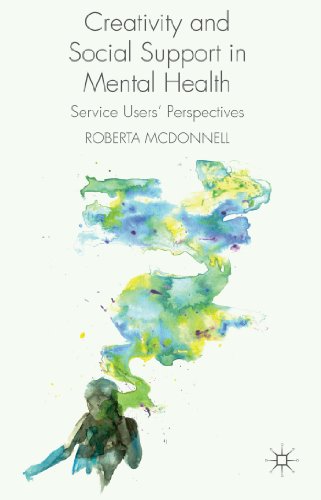“Power corrupts; absolute power corrupts absolutely.”
Attributed to the nineteenth century historian Lord Acton, this insight was particularly aimed at monarchical systems where the ruler was believed to be there by divine authority and therefore could do no wrong. Like some of the more despotic Roman emperors, Shakespeare’s Scottish Thane Macbeth seems to have become drunk on his own self-image and the power of kingly status. Once in the grip of it, the thirst for more power drove him to ever more bloody and heartless slaughter. And like many corrupt regimes, once the public realised they were under the rule of a tyrant it was too late to depose him. Fear was the order of the day.
Shakespeare was a genius. His understanding of human psychology is timeless, yet forever being re-discovered and Macbeth, the play, is particularly incisive. As the tale intimates, the loss of their young son triggered the slide of Lord and Lady Macbeth into a state of emotional numbness wherein the seeds of a desperate quest for validation and position could take root and fester; almost a state of grief gone awry.
We know that grief can manifest in many forms and that anger is one of them. Yet while anger is a common human emotion built to protect us, no-one would condone a power-crazed killing spree. It is, in my view, the pathological nature of Macbeth’s anger that scares us so much and that creates the dark mood of the play, with all the superstition and ritual that have surrounded it.  Blind rage coupled with the knowledge that he has damned himself seem to drive Macbeth into a state of complete disregard for the humanity around him, perhaps even denial of their suffering. Jung would no doubt say he was in the grip of a sinister, destructive shadow archetype.
Blind rage coupled with the knowledge that he has damned himself seem to drive Macbeth into a state of complete disregard for the humanity around him, perhaps even denial of their suffering. Jung would no doubt say he was in the grip of a sinister, destructive shadow archetype.
But the puzzle remains as to why and how Macbeth’s reign of terror escalated to such a degree. We hear for instance his initial thoughts of ambition and regicide, then his second thoughts pulling back from the awfulness of it – yet the influence of the witches’ predictions and Lady Macbeth’s goading are the focus of some debate. Was he channelled into his dreadful path, to carry out a self-fulfilling prophecy sparked off by the witches’ proclamations, or was the naked ambition there from before? Was he manipulated by Lady Macbeth to re-ignite his notion to murder the king, or did she just fan the flames that were already there?
Here’s an extract from my daughter Dearbhlá’s GCSE coursework of a few years ago, regarding
The Witches and Macbeth
‘The witches seem to predict that Macbeth will do something awful and the world will be thrown into chaos but when we meet Macbeth we see quite quickly that his thoughts have already been dwelling on his own political rank. They tell him he will be king and after they leave he states,
“Stay, you imperfect speakers! Tell me more!”
Murderous ambition is already present in his mind so the witches cannot be seen to have caused it, though they help to bring it to the surface. Even Macbeth himself starts to talk like the witches in another aside:
“This supernatural soliciting;
Cannot be ill, cannot be good.”….
….“My thought, whose murder yet is but fantastical,
Shakes so my single state of man
That function is smothered in surmise,
And nothing is but what it is not.”
Macbeth is “rapt” according to Banquo, and mesmerised by what the witches have said but this could be because it has opened up ideas and plans already in his head. So again the witches are part of the backdrop but not the entire cause of all the chaos and horror in the play. If the witches do have a bigger plan to destroy Scotland, Macbeth is a willing pawn in their game. Even more sinister is his wife Lady Macbeth who as we will also see later encourages and even browbeats him into actually murdering King Duncan.
While the witches have created the atmosphere and kick-started the core themes of the play, it is the main characters of Macbeth and his wife who think the ambitious thoughts and do the evil deeds….
There is a sense that the witches’ predictions are coming true. It could just be that this was bound to happen and they are commentators, dramatising the events with an enchanted presence. But Macbeth may not have actually committed the murders without the witches’ confirmation that he would become king. They do, therefore, influence the development of the chaotic, terrifying plot, alongside Macbeth and his wife.’ [Dearbhlá McDonnell 2012]
As many literature students will attest, the theme of the play is terror; fear of what the next moment will bring. The witches and Lady Macbeth serve to intensify the emotion of the play and act as vehicles for the darkness erupting from the main character, Macbeth. So, on to the reason for my choice of subject today – I went to see the film yesterday evening with my daughter Caitríona at Queen’s Film Theatre, Belfast.
We both felt it was brilliant, if horrifying. There are many difficult scenes of violence and carnage which do, however, create the frightening historical, social and personal context perfectly. Every aspect of the film, from cast to colour palette, does justice to The Bard’s most risky and perhaps most perceptive work. Humans are strong but also weak; have the potential for good and for evil; create and destroy. Given a conglomeration of random events and developmental circumstances, anyone’s life can turn into a perfect storm of chaos. This is the lesson we must take from Macbeth.
Without checks and balances, human nature is corruptible.
“Power corrupts; absolute power corrupts absolutely.”
Citations for images:
http://www.blurb.com/b/589370-macbeth
http://www.wisdompills.com/2014/09/04/collective-unconscious-archetypes-comprise/




.jpg)

.jpg)

